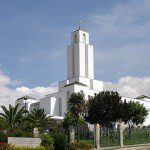In 1967 Noam Chomsky wrote an essay for The New York Review of Books arguing that American intellectuals had been too subservient to those with political power and that the war in Vietnam was a particularly egregious example of that subservience.
In doing so he was following an example set for him by Dwight Macdonald after World War II. Macdonald insisted that, faced with the atrocities of war, both those of our enemies and our own, we must ask the question "What have I done?" What is my responsibility for what has happened?
According to Macdonald, the ordinary German citizen should have asked himself or herself that question with regard to the death camps. And the ordinary American citizen should have asked it about Hiroshima and Nagasaki. Have I looked the other way or even encouraged evil with a wink? Have I kept my hands clean but provided material or perhaps psychological assistance for acts and events that I believed were morally wrong? Do I excuse myself from the effects of what I do by saying, Eichmann-like, "I'm only doing my job"?
These are important questions. One need not agree with particular political positions taken by either Macdonald or Chomsky to agree with the thrust of their argument: in a democracy, intellectuals—like everyone else—have a moral duty to oppose that which they believe to be wrong, and because they often have the knowledge and know-how to do so, they have a special duty to oppose those things. They must be responsible for what they know and how it is used.
Unfortunately, however, intellectuals are more like everyone else than they usually believe. We are as subject to the political fads of our peers as anyone. Different fads than the man-in-the-street, perhaps. Driven by fads nonetheless.
Intellectuals are no more likely to ask "What effects will what I am doing have on others, on society as a whole?" than anyone else. Yet intellectuals are perhaps more likely to be arrogant about their relation to the rest of society than most: "We know and they don't." And being an intellectual doesn't make a person more morally insightful than others. Knowledge about the world does not imply virtue.
The question of how to be a responsible citizen is a difficult question that we cannot avoid, and though we ought to remain skeptical of our own opinions (since it is easy to be duped), we ought also not to use our skepticism as an excuse for mere quietism in the face of political power. Democracy requires us to do our best with what we know, knowing that we are sometimes wrong.
Mormon intellectuals share the same responsibility toward the larger culture, and the same duty to be skeptical, that other intellectuals have. But their responsibility to the LDS Church is different. The Church is not a democracy.
Whereas an intellectual is duty-bound to criticize those in political power as needed and to use his or her learning to do so, intellectual members of the Church don't have that same responsibility. That doesn't mean that the Church never makes a mistake or that it is beyond criticism. It means that if I believe that the Church is, on the whole, led by revelation, then I must be doubly skeptical of my opinions.
The usual skepticism—perhaps I am merely following a current intellectual fad; perhaps I trust my insight too much—is appropriate. Within the Church, add to it the skepticism that ought to come when I compare my thoughts to thoughts that, in principle, may have been inspired by God. In that comparison, I always come in second, at best. Intellectuals should all be humble; Mormon intellectuals should be doubly so.
The Book of Mormon describes the situation in which Mormon intellectuals find themselves:
O the vainness, and the frailties, and the foolishness of men! When they are learned they think they are wise, and they hearken not unto the counsel of God, for they set it aside, supposing they know of themselves, wherefore, their wisdom is foolishness and it profiteth them not. And they shall perish. But to be learned is good if they hearken unto the counsels of God. (2 Nephi 9:28-29)
Thinking that our learning is sufficient to make us wise, we intellectuals have a tendency to set God's counsels aside, often because they come through human, fallible voices who are not as learned as we.
We suppose that we "know of ourselves," which I take to mean that we know because we have put forth the effort to learn, to study, to experiment, and to publish for peers. We may forget that, even if we are speaking in only human terms, we have not come to what we know alone, of ourselves. The cliché that we stand on the shoulders of giants is a cliché because it is true. Worse, however, is that we forget that wisdom requires not only our learning, but also the counsels of God.





